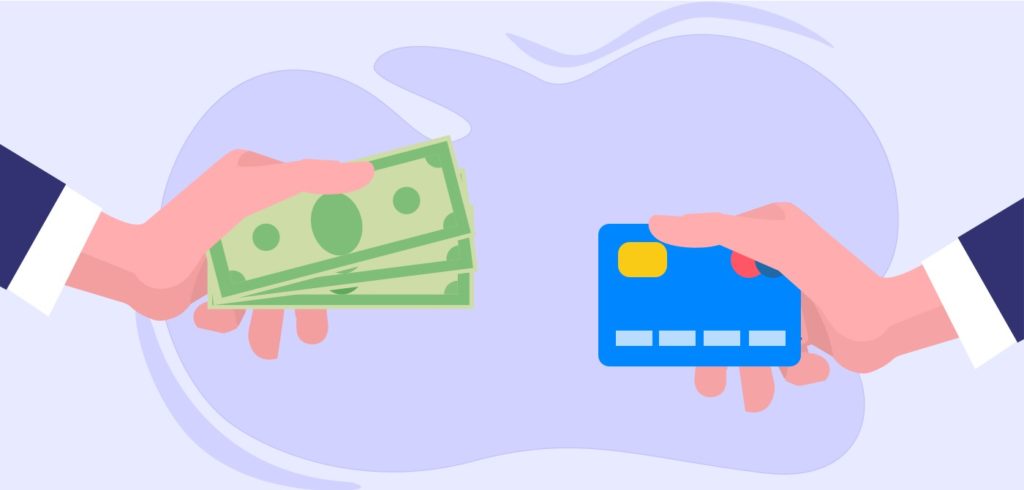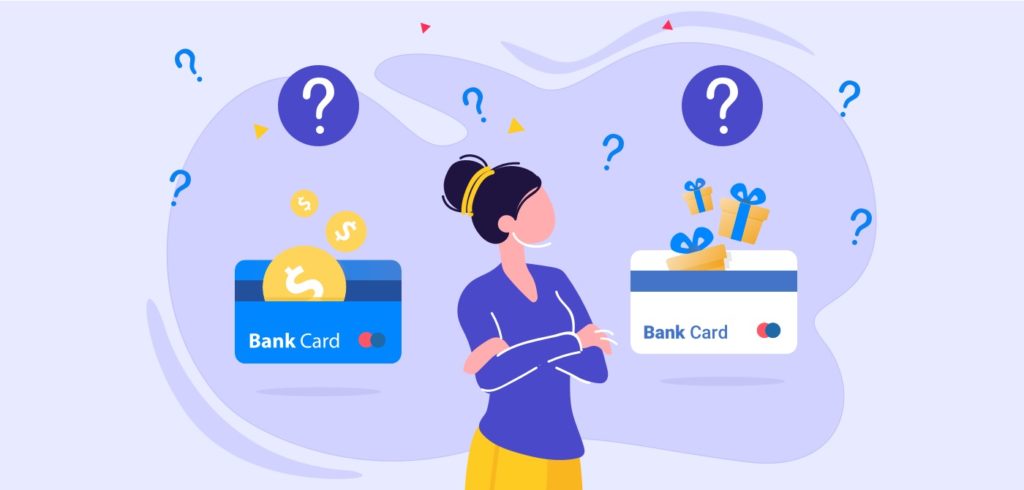
Perhaps when you were young, people warned you about the dangers of a credit card. Whoever thought a small plastic card could lead to so much debt and potential financial prison?
Those warnings didn’t come without reason though, as just over 40% of families in the United States have some sort of credit card debt. Add that with $1200 of average annual interest and a credit card can look scary from the outside.
But newsflash: credit cards don’t have to be all doom and gloom. It’s always good to buy only whatever you can and always spend within your means. Simply put: don’t buy a hoverboard if you don’t need it nor can you afford it.
Credit cards these days have so many potential benefits, like
There are so many different options out there and it can be tempting to not just jump at the first one. Just like choosing a job, it helps to do your research and be as meticulous as possible.
Below are some tips to help you get started looking for a credit card.
1. How much will the card cost?
While there is no fee to open up a credit card, there are various fees associated with the card once your account is open.
One of the most common fees are annual fees. This is a fee that you pay once per year regardless of how many times you use the card. If you open a credit card that charges an annual fee, this fee is unavoidable.
Some credit cards waive the annual fee for the first year and then reestablish the fee for each subsequent year. Annual fees can be as little as $95 a year or as much as $495 a year.
Chances are, cards with higher annual fees will come with

But some
Other fees include late fees, which can be as high as $39 per event. This is applied if you miss a payment – even by one day only. If you happen to make a late payment, sometimes the credit card company will waive the late fee for the first time. But if you get into a habit of paying late, don’t expect the credit card company to help you out and waive the fee each time.
The credit card payment is usually due on the same day each month — this consistency should make it easier for you to pay on time. Set reminders on your smartphone about the bill’s due date or enroll in your credit card company’s autopay program.
This is where the credit card balance is automatically removed from your checking account each month and sent to the credit card issuer.
2. What is the interest rate?
When using a credit card, if you do not pay off the entire balance in full each month, you will be charged interest.
Even if you make the minimum payment on the card (this tends to be a tiny fraction of the total balance owed – sometimes as little as $35), the interest charge will still kick in.
The only way to avoid interest is by paying off 100% of the last statement balance.
The annual percentage rate or APR on a credit card can be as high as 29%. In some cases even higher. The rate depends on how strong of a credit history you have and market conditions.
Still, it is important to know what this number is before applying for the card. Credit card companies tend to disclose a range of interest rates initially. The actual rate attached to your card may differ slightly from this range once you apply for the card. The only time you need to worry about credit card interest is if an unpaid balance is left on the card.
Pay off the entire statement balance every month and you won’t have to worry about interest. Should you leave a balance on the card, interest expenses can easily become the biggest cost associated with a credit card.

Additionally, leaving a balance on your credit card can ding your credit score. While this does not result in any immediate fees, it can lead to higher costs later on.
A lower credit score results in a higher interest rate on a car loan or mortgage, should you apply for one. A high credit score leads to a lower interest rate on these loans. That also means lower monthly payments.
3. How do the rewards programs work?
As mentioned earlier, rewards programs are a major component of most credit cards. Some credit cards offer
Some credit cards may also offer an annual credit of $300 towards any travel related expenditure. If you book a hotel for $1,000 or a flight for $500, for example, you’ll receive a credit of $300 as a result. This is essentially free money and turns a $500 annual fee into $200.

Some credit cards may also offer extra points for each dollar spent in certain categories. For example, the card may offer 3x points for every dollar spent at
Credit cards linked to specific airlines may offer 2x points should you use the card to book a flight with that airline. These perks are also disclosed on the credit card issuer’s website to allow you to choose the card that has a

Some credit cards offer
This cash back reward can also be used towards your credit card balances. You essentially get paid to use your credit card!
As with any reward program, the perks tend to evaporate should you leave a balance on the credit card. That is, the money you will be spending in interest charges will likely be more than any monetary value you received from the card’s rewards program. This is yet another reason to pay off your credit card balance in full each month.
4. What will you use the card for?
It is important to figure out what role this credit card will play in your daily financial life. If you plan to put all of your daily purchases on the card – such as gasoline, groceries, clothing, transportation and dining out – you may want to select a card that offers rewards points in a wide variety of categories.
Rather than 3x points on travel, maybe a card that offers 2x points for every dollar spent (regardless of which category) is a better value.

It is also key to gauge how frequent of an international traveler you are. That’s because many cards charge currency conversion fees. If you use the card overseas, you will pay a fee of 2-3% of the transaction amount.
This is in addition to any unfavorable effects from your home currency being worth less in another country. Yet some cards charge
To Sum Up
Not all credit cards are created equal. Take rewards programs seriously. Choosing a credit card that offers a
Aside from rewards programs, it is important to know what the card’s annual fee is. This is a fee charged simply for having the credit card open. It is charged whether or not you use the card. Some cards have no annual fees. Cards with higher annual fees may offer other perks to help offset those fees.
Information about a credit card’s fees, interest rate, and rewards program is all readily available online. It is simply a matter of gathering the information and selecting a card that suits your interests and spending habits.
